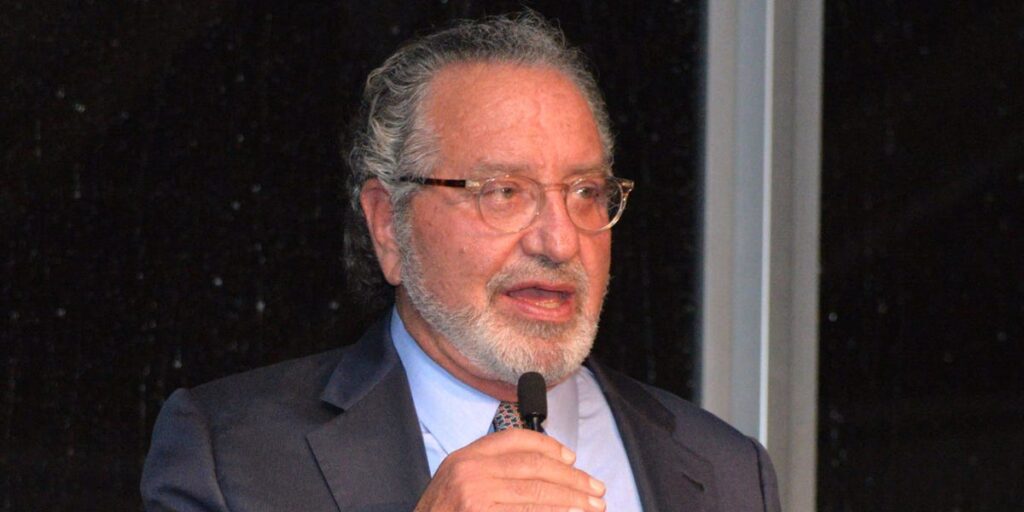- Paloma Partners told investors last fall it would take time to meet $1.2 billion in redemptions.
- Paloma is pulling $600 million from hedge funds it’s backed, including quant firm Aquatic Capital.
- The $1.7 billion hedge fund has struggled with performance, gaining just 2.5% in 2024.
Multistrategy hedge fund Paloma Partners is drumming up cash to repay its departing investors — but it’s going to take some time, and not everyone is coming along for the ride.
Facing $1.2 billion in redemption requests, Paloma last fall told its investors it would need more time to liquidate harder-to-sell assets and repay them in full. Now, more details are emerging about what Paloma is putting into the special-purpose vehicle created to house those assets.
As part of the payoff plan, Paloma will exit its investment in Aquatic Capital, one of the buzziest quant fund launches in recent years, according to four people familiar with the matter, who asked to remain anonymous to discuss private information. Paloma seeded Aquatic, which was founded by Citadel alum Jonathan Graham, in 2019 and has $360 million invested with the firm, which is subject to lock-up terms and can be redeemed in tranches over the next couple of years, the people said.
Paloma has also put into the SPV — called Dove — a portfolio of commercial-mortgage-backed securities valued at $240 million, which will be sold off over time, people familiar with the matter said. The portfolio was previously managed as a separate account by Cannae Portfolio Advisors, a credit fund that has managed Paloma money since 2009.
A Paloma representative declined to comment.
Paloma is one of the oldest and most venerated hedge funds. Founded by Donald Sussman in the 1980s, it is best known for seeding quant giant D.E. Shaw, as well as bets on LMR Partners, Squarepoint Capital, and Sona Asset Management.
While Paloma is off to a strong start this year —it’s up 2.5% through mid-February, a person familiar with the performance said — the firm has struggled with performance in recent years and has overhauled its C-suite.
The fund brought in hedge-fund veteran Neil Chriss, formerly of Millennium and Hutchin Hill Capital, in 2023 to lead the firm. But he lasted less than a year. He was replaced by Ravi Singh, an alum of Credit Suisse’s asset management division and Goldman Sachs, where he held leadership positions in prime brokerage, equity derivatives, and equities risk.
Paloma gained just 2.5% in 2024 in what was generally a bumper year for hedge fund managers, and it has averaged 3.6% over the past three full years, according to performance figures seen by Business Insider. A composite hedge fund index returned 6.6% over the past three years, according to industry research firm PivotalPath.
Paloma’s assets under management have fallen to $1.7 billion, down from about $4 billion when Chriss took the helm in 2023.
Assets in Dove to be sold over time
With redemption requests piling up, Paloma told its limited partners in November it would only be able to pay them 30% in upfront cash and the rest to come over time as it liquidated holdings, The Wall Street Journal reported. Ultimately, Paloma paid half the $1.2 billion balance in cash, with the remaining $600 million to be distributed as it winds down assets in Dove, which is being administered by PwC, the people said.
Systematic trading outfits, reliant on technology and data, typically require years of patience to yield results, but Aquatic has nonetheless gotten off to a slow start. It launched in 2019 with $500 million in commitments from Paloma, Bloomberg reported, and assets later hit $1.5 billion with capital from Blackstone, the Teacher Retirement System of Texas, and others.
Aquatic lost 3.3% between September 2023 and September 2024, according to returns from Texas Teachers’, the public pension. Quant hedge funds were among the industry’s best performers in 2024, gaining 14.2% on average, according to PivotalPath’s equity quant index.
Aquatic did not respond to requests for comment.
Cannae, a credit fund that specializes in structured products, was spun out of Paloma in 2020 and raised external capital. It continued to manage a structured credit portfolio for Paloma through a separate account, composed primarily of CMBS. Commercial real estate has taken a beating in recent years, and with many bonds trading below par, liquidating holdings would in many cases mean locking in losses.
While assets have fallen and Paloma has had to pull capital from external managers, the fund isn’t finished allocating. Geoffrey Lauprete, the ex-CIO of WorldQuant, is expected to launch his own fund later this year with backing from Paloma.
Paloma has also revamped its C-suite, apart from Singh it has also recently hired new executives to manage finance, risk, operations, and marketing. Michael DeAddio, president and COO of WorldQuant until 2020, joined in December and Louis Molinari, global head of capital introduction and hedge fund consulting at Barclays until 2024, joined as chief marketing officer this month.

